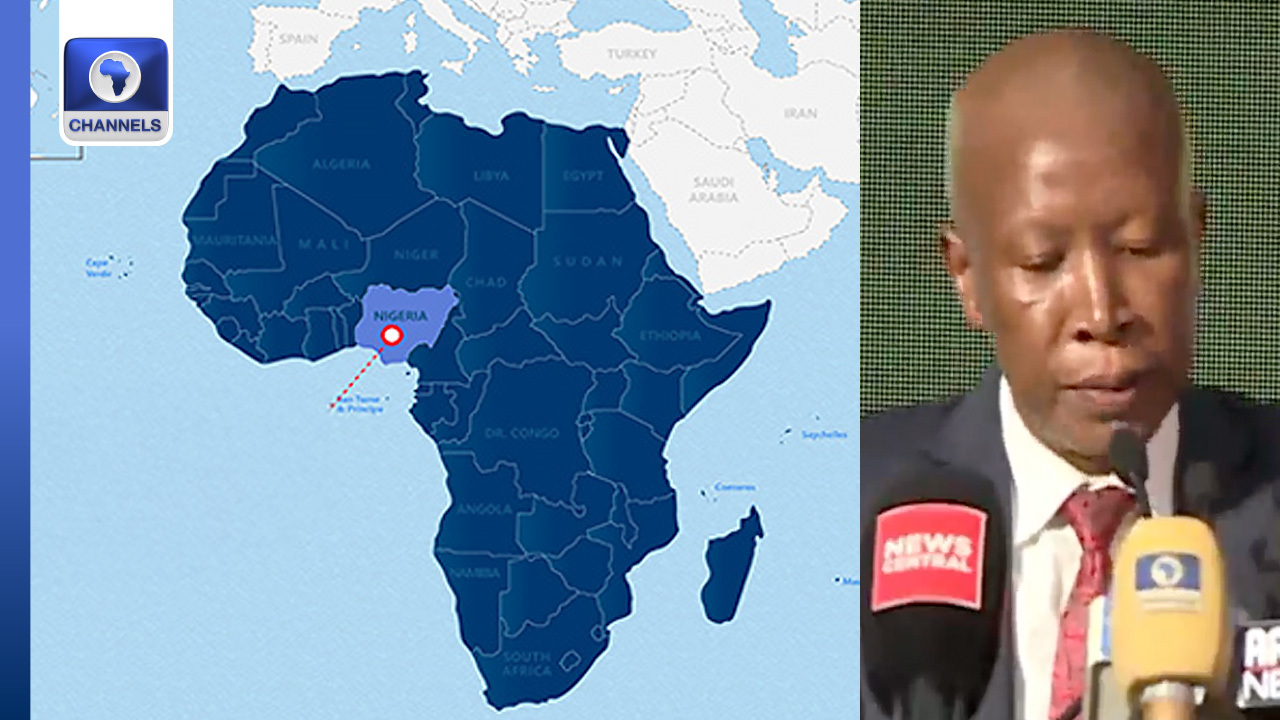Julius Malema, the president of the Economic Freedom Fighters (EFF), attributed xenophobia to poverty, inequality, and government failure, calling it a betrayal of African unity.
Malema delivered the keynote address at the annual general meeting of the Nigerian Bar Association (NBA) in Enugu on Sunday.
“African unity is betrayed by xenophobia. It is a disease brought on by inequality, government failure, and poverty. Our African brothers and sisters are the ones who lost. The reason for South Africa’s unemployment crisis does not include Somalis, Zimbabweans, Congolese, and Nigerians.
The root of the imbalance in South Africa lies with the white minority and multinational corporations, who continue to exploit while refusing to industrialize. Instead, they distract people’s real enemies, and we must teach them that unified, not divided, is the solution to the continent’s crisis, he said during the event’s opening ceremony.
Malema, the leader of a communist political party renowned for its red berets and military-style attire, pointed out that while Nigerian businesses and investors had expanded into South Africa, South African companies had made significant inroads in the country by creating jobs and providing services.
Read more: Malema and the World Bank: African Countries Must Regulate “Debt Trap” Loans From the World Bank and IMF.
The South African noted that Nigerian literature, film, and music continue to influence South African culture, just as Nigerian universities and industries provide platforms for Nigerian talent.
We must integrate our economies if we want to end one-way migration, where Nigerians are forced to leave their homes for South Africa for opportunities. Young Nigerian engineers should not be limited to being foreigners but as Africans making a difference in Africa when they are employed in Johannesburg, Cairo, and Accra. Without fear but with support as partners in a shared future, South African entrepreneurs should be able to establish operations in Lagos.
The president of the Economic Freedom Fighters argued that Nigeria’s and South Africa’s economic strength could launch a new industrial revolution in Africa.
Nigeria has a growing agricultural sector, natural gas, and oil. The world’s richest platinum, magnesium, and coal deposits are found in South Africa. We have the minerals, energy, and human capital to create a self-sufficient continent if all are combined.
“Both of our countries are trapped in neo-colonial arrangements, where raw materials are cheaply extracted and exported to Europe, America, and Asia before being sold back to us for outrageous prices as finished goods. We must end this dependency cycle. South Africa and Nigeria must collaborate to industrialize, co-build factories, and use African resources.
“Africa, Its Own Saviour,” p.

The fervent advocate for structural and political cohesion on the continent.
We must reject the notion that Beijing, Washington, or London will be the source of our salvation. Africans who refuse to be divided are the ones who can save us in Lagos and Johannesburg, Abuja and Pretoria.
We must coordinate our trade policies, align visa regulations, and create a continental infrastructure that connects our citizens. In the same way that people traveling within their own continent don’t need a visa, South Africa and Nigeria are both exempt from it.
“We are one,” he said. Both South Africa and Nigeria are familiar with colonialism’s suffering. Both countries have experienced divisions abroad. Both countries have enjoyed global imperialism’s efforts to divide, exploit, and rule us, according to the South African.
One Parliament, One Currency

Malema refuted his long-held dream of a borderless, single-governing nation. To bolster Africa’s strength, he demanded a single president, one parliament, one currency, and one military command.
He praised Nigeria’s support for South Africa during the anti-apartheid struggle and urged both nations to establish a methodical approach to the African Continental Free Trade Area.
The 44-year-old politician also urged stricter regulations on loans from the World Bank and other international lenders to protect African governments from reckless borrowing.
He remarked that Africans must love one another and not murder one another. We must learn to treat ourselves better because black people are not loved in Africa and are not loved abroad either.
Source: Channels TV

Leave a Reply